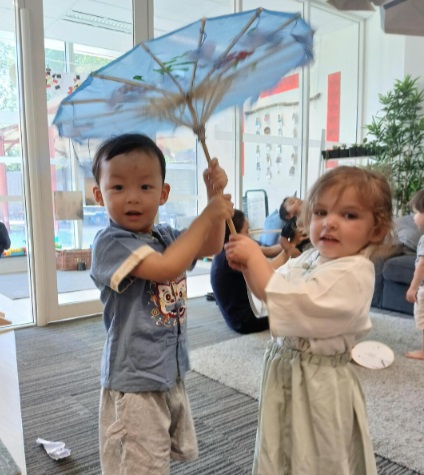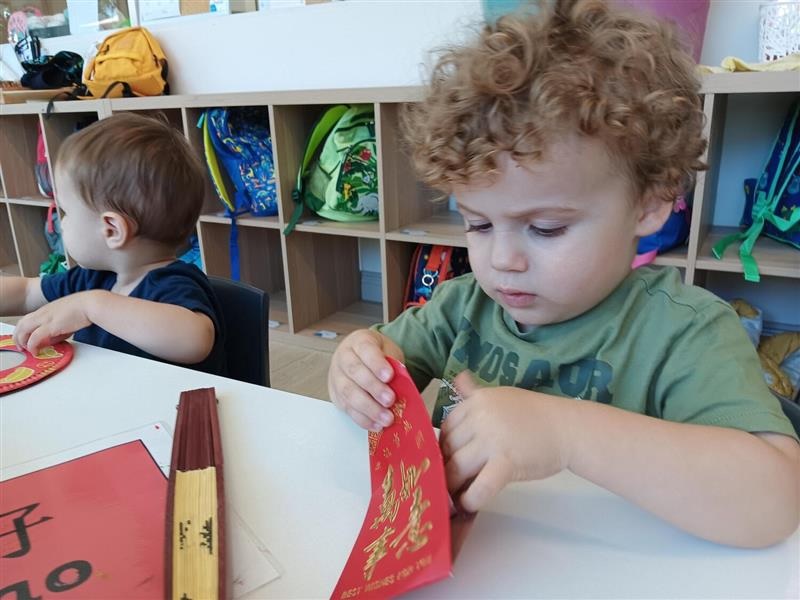February 2025
SUMMER
NEWSLETTER
360 North Ryde
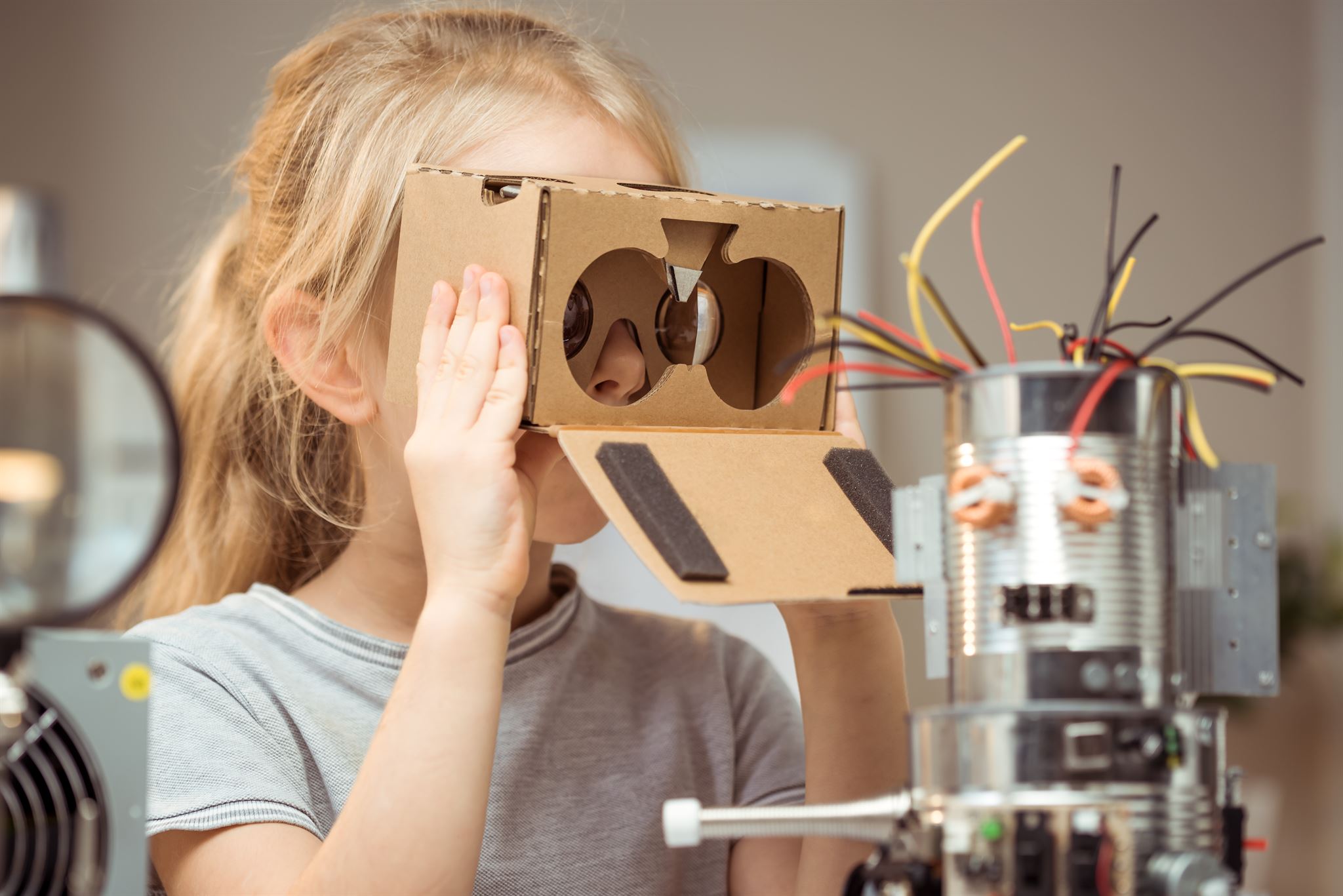
IT'S A BRAVE NEW WORLD
Libby Klingberg, 360 Founder & Managing Director
Dear Families,
This past year has seen significant changes in our relationship with technology, particularly with the increasing integration of AI into our daily lives and workplaces. Throughout 2024, we explored how this new technology can support our purpose of achieving exceptional outcomes for children and families in which we partner. In 2024 we also developed an Information Systems roadmap to guide us into the future and 2025 we see a range of new technological innovations at 360.
While these technologies are exciting and offer numerous benefits to our services, they also come with risks that require careful consideration. As an organisation, we recognize the powerful influence of AI and understand the importance of proactively establishing guidelines for it’s use within our services. Additionally, we also recognise the security risks associated with the growing use of technology and are acutely aware of the need to plan and implement the use of technology in a safe and secure way.
This newsletter outlines our progress on our Information Technology Roadmap, providing you with some insight into the work we began in 2024 and will continue into 2025. We invite families to join us in any capacity that interests you. Whether providing feedback or engaging in deeper discussions, your input is valued. If you're interested, please contact our IT guru Stuart Rae stuartr@360earlyeducation.com.au.
Each year we review our philosophy statement with children, staff, families, and community partners to ensure alignment with our beliefs. Our philosophy statement is an extremely important document in early childhood education and care as it underpins the beliefs, systems, decisions, policies, and procedures of the service. It reflects a shared understanding of the role of the service among staff, children, families, and the community. It also guides educators’ pedagogy, planning, and practice when delivering the educational program, including interactions with children, families, and the environment. Our existing statement, developed over 17 years and filling an A4 page, needs to be condensed for daily use. Therefore, we have created 11 statements capturing the essence of a 360 service. The longer version is still in use as an explainer, and both will be sent to you for review. We value your feedback and ask you to please read this abbreviated version in this newsletter and email the service directly with any thoughts!
Kind regards,
Libby Klingberg Managing Director 360 Early Education

Policy Review
Our commitment is to use Information Systems and AI ethically and responsibly, always respecting the privacy, safety, and dignity of children, families, and educators.
Artificial Intelligence Policy
Privacy & Confidentiality Policy
360 Philosophy (original)
OUR 360 PHILOSOPHY
"Each year we review our philosophy statement with children, staff, families, and community partners to ensure alignment with our beliefs. Our philosophy statement is an extremely important document in early childhood education and care as it underpins the beliefs, systems, decisions, policies, and procedures of the service ... Our existing statement, developed over 17 years and filling an A4 page, needs to be condensed for daily use. Therefore, we have created 11 statements capturing the essence of a 360 service. "
Libby Klingberg, 360 Founder & Managing Director
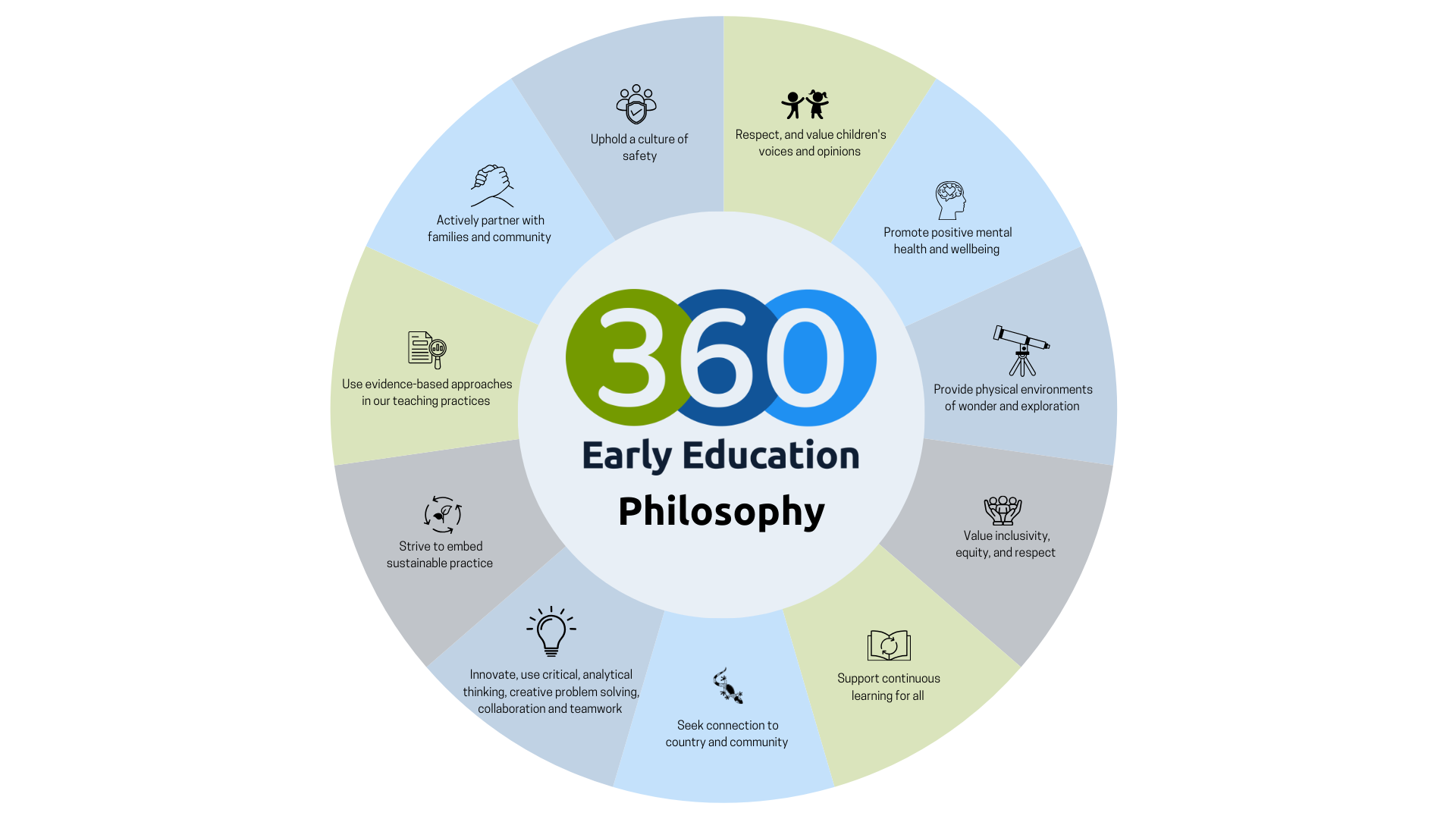
I screen, you screen, they screen.
Beth Sebefisi, Head of 360 Curriculum and ACT General Manager
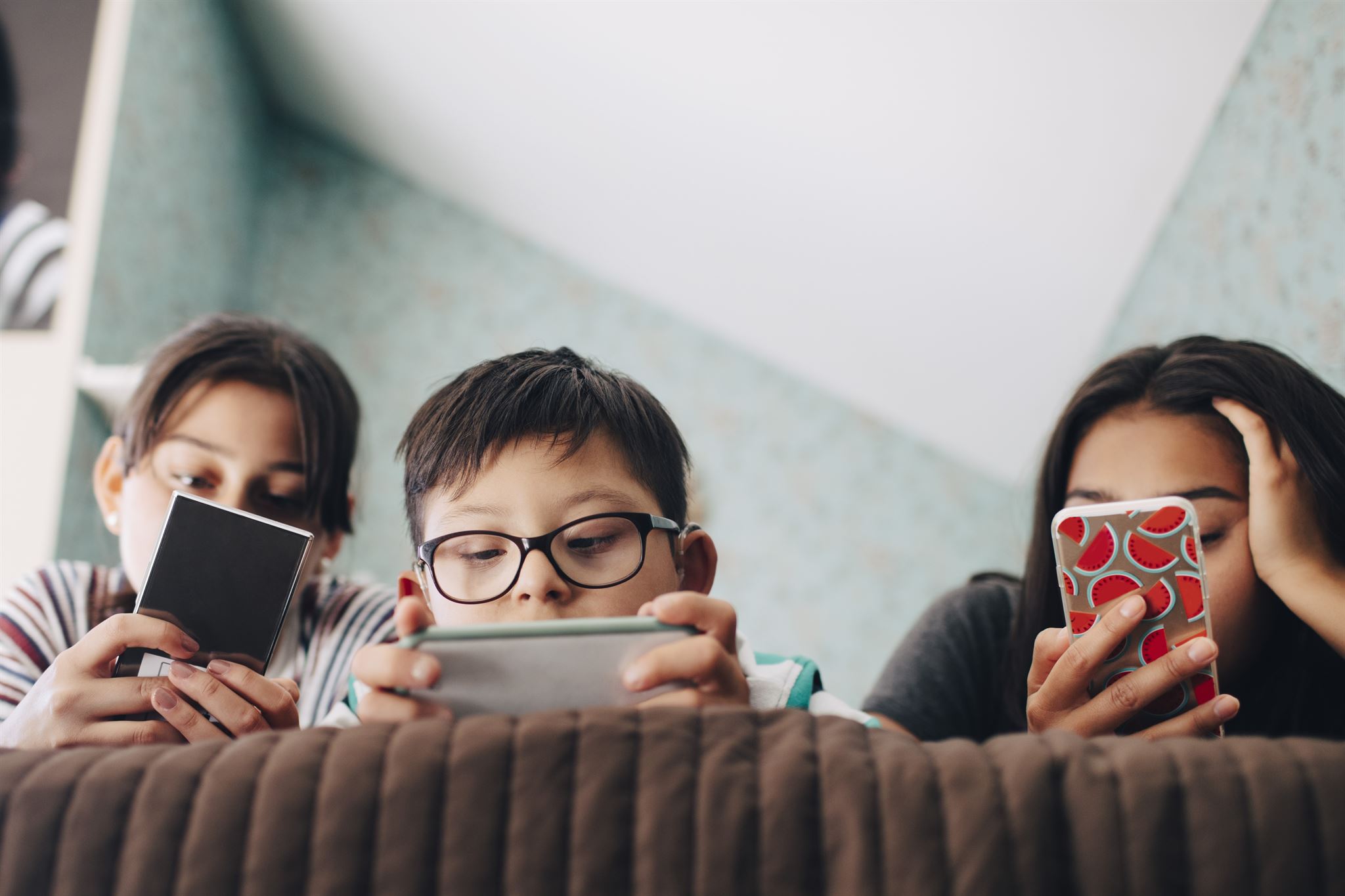
This year the World Health Organisation reiterated its (unpopular) finding that no screen time is recommended at all before the age of one, and from 12 months to two years, at most one hour of screen time per day with a firm ‘less is better’ condition attached.
As usual, the responses from overwhelmed and exhausted parents – and some educators – was one of snide dismissal. The thought of zero screen time wasn’t just unrealistic, it was probably unhealthy! It was ‘technophobic’. Screens exist. Are they really suggesting that we should pretend, for ideally two whole years, that they don’t?
Is a ruling like this ever that cut and dried?
As we work alongside families we may find ourselves conflicted. What is done, what is believed and what is ‘known’ can sit uncomfortably with what science shows us, as professionals, to be ‘right’. One of my core beliefs – despite it never making it to my official philosophy – is that we have to learn to pick our battles. Is this one worth fighting?
Critical Years
Dana Suskind, director of the Thirty Million Words Initiative, works with families to teach parents to effectively communicate with their children during the critical years of brain development. Suskind explains, “The screen of a human being saying exactly the same thing as somebody face to face will have absolutely no effect on the language learning (because) it’s not responsively contingent”. What this means, essentially, is that it’s not a conversation. What is going to be said was predetermined, and there’s no back and forth between the child and the speaker.
“At 24 months, children who have been exposed to less language are slower processors. As a result, they can’t pick up newer words… you’re not just behind in the race of life, you’re a slower runner, and that’s why you don’t catch up.”
- Dana Suskind, Thirty Million Words
Responsive Contingency
Interestingly though, studies show that when this responsive contingency is offered between adults and children, such as in a Skype chat with grandma, the presence of the screen is essentially irrelevant. Screen time becomes an issue when it replaces those social interactions and conversations that are fundamental for building neural pathways from birth.
Earlier this year, researchers from Ohio State University found that children who by the age of five were given frequent opportunities for responsive contingency via shared reading could have heard an average of 1.4 million more words than children who were not read to.
Language development has a compounding effect. Because you don’t need to think so much about words you know, you can keep building new words. We recognise this as the ‘language explosion’ which occurs between the ages of one and three.
With many experts believing that the critical period for language development ends as early as five years old, you can imagine how much more challenging or even impossible it may be for a child to catch up at school if they hear, and therefore have, fewer words than their peers.
TV is no substitute
TV is no substitute for responsive communication. Again according to Suskind, “At 24 months, children who have been exposed to less language are slower processors. As a result, they can’t pick up newer words… you’re not just behind in the race of life, you’re a slower runner, and that’s why you don’t catch up”. That’s pretty dire. So how do we apply this understanding, reasonably and rationally, as we work with children and their families? How do we advocate for every child’s right to environments rich in these responsively contingent language experiences without telling families that using screens for an occasional reprieve makes them negligent?TV is no substitute TV is no substitute for responsive communication. Again according to Suskind, “At 24 months, children who have been exposed to less language are slower processors. As a result, they can’t pick up newer words… you’re not just behind in the race of life, you’re a slower runner, and that’s why you don’t catch up”. That’s pretty dire. So how do we apply this understanding, reasonably and rationally, as we work with children and their families? How do we advocate for every child’s right to environments rich in these responsively contingent language experiences without telling families that using screens for an occasional reprieve makes them negligent?
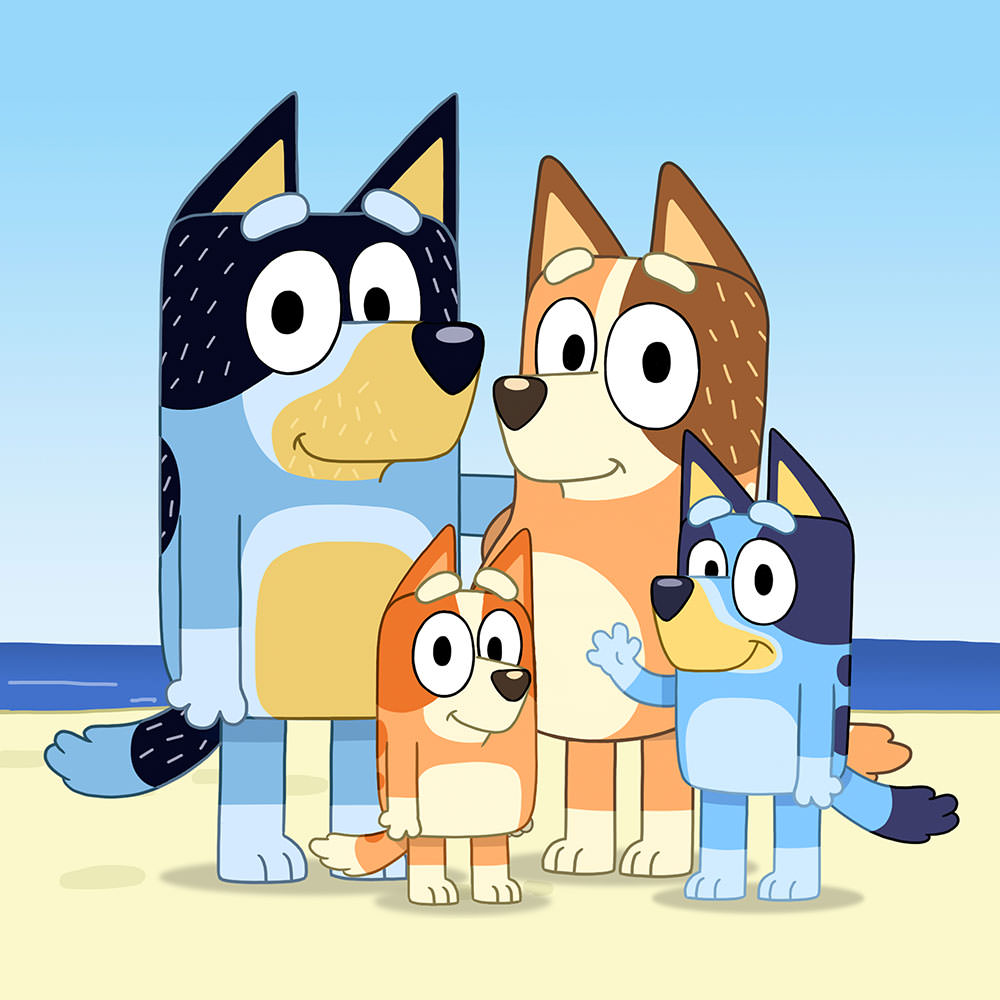
Bluey and the Heeler family. Image credit: ABC TV
Passive and Active Screens
In my extended family we love Skype to keep in touch. At home, we also love using the laptop side by side to look up ‘how it’s made’ videos and learn together. We love watching music clips and choreographing (generally terrible) dance routines together Simply put; we should be able to get by without television, which is so low on the responsive communication scale.
But I have something to confess.
I. Love. Bluey.
More specifically, I love Bandit; the part-time working, quick-witted, super-attentive dad-bodded patriarch of the Heeler family in the ABC TV show Bluey. I would argue that what makes Bluey so wonderful is the nuanced way it draws on quintessential elements of the Australian parenting experience and tells us we’re not alone. Bandit’s not perfect, but he’s the perfect blend of attentive and sassy, sarcastic and sincere, and ironically – he doesn’t need the tv. One night, after the kids went to bed, I asked my husband to watch it with me. He laughed his way through it, then shook his head and smiling, said “This is us!”. In a way; he was right; but not us all the time. The Heeler family are us on a great day. Us after a good night’s sleep. Us when we don’t have work deadlines making us cranky, or an unspoken stalemate over undone dishes dragging well into its second day… they’re the parents we want to be.
Confronted by knowledge
Sometimes research can be confronting. It can highlight the ways that we fall short, and it can be very easy to take it personally; as parents or as teachers. Sometimes, we have to make the active decision to recognise how new understandings, uncomfortable or inconvenient they may be, provide us with an opportunity to advocate for improved outcomes for children.
So, I’m an educator and a mum, and my kids watch Bluey on the non-responsive television screen. I’m not perfect, and I don’t think it’s my role as an educator to demand that parents try to be. If we work alongside families we can balance screen time as part of a diverse ‘technology diet’.
We can help families to understand why the guidelines for best practice exist. We can highlight all the things that families are doing right. And we can encourage them to see why we make the choices that we make in our classrooms.
Maybe when we feel conflicted by new ideas it’s not about choosing to battle or not. Rather, armed with the results of research, we can help identify the ‘enemy’ and demonstrate possible battle strategies to our war-weary parenting soldiers.
A Special Invite to the ACA Conference
The Australian Childcare Alliance (ACA) is a non-profit peak body representing 2,500 member early childhood services. They work closely with the government to advocate for better outcomes for children and families and represent over 70% of privately-owned long day care services in Australia.

Image Courtesy of ACA NSW. Pictured: ACA NSW Board Members with 360 CEO, Libby Klingberg and 360 Commercial Director, Stuart Rae.
360 Early Education had the privilege of joining the Australian Childcare Alliance (ACA) 2025 National Conference in Canberra. Over two days, Libby Klingberg, CEO of 360, and Stuart Rae, Commercial Director, engaged with ACA State and National Board members to discuss key issues facing the sector.Topics included:
- Challenges such as Worker Retention Payments
- Best-practice governance procedures for early education services
- Ambitions for universal childcare
It was an honour for 360 Early Education to be recognised as a leader in the field, contributing valuable insights and expertise.
Read more: ACA States all meet in Canberra
2024-2025 IT Roadmap
Stuart Rae, 360 Commercial Director
Piloting the use of AI
We undertook a number of AI related pilots in 2024 including:
- An AI tool to streamline staff rostering processes (not proceeded with);
- An internal 360 Policy chatbot powered by ChatGPT to answer any policy questions our staff may have (remains in pilot); and,
- An AI 'coach' to support educators with documentation (Planning a roll-out in 2025).
Rolling out a CRM Platform
We have been piloting a CRM (Customer Relationship Management) platform to reduce the administrative burden on our staff by automating various processes such as;
- Sending permission forms for electronic signing and tracking
- Simplifying and automating health & medical management processes - Improving the flow of information from our office staff to educators.

Carrying Out a Comprehensive Security Audit
In late 2024 we had a third party carry out a comprehensive security audit to ensure our systems not only continue to be safe and secure but also respond to the changing cyber security landscape. The audit showed we are in a strong IT security position and has also provided us with a plan to further enhance security and 'harden' our systems against potential cyber threats such as;
- 24/7 Cyber threat monitoring
- Rolling out Microsoft Single Sign On (SSO)
- Multi Factor Authentication across (MFA) all 360 Systems
Carrying out ongoing security awareness training for 360 staff Throughout our roadmap development and implementation, we have ensured that the technologies we have trialled or adopted align with the National Quality Framework (NQF), the National Principles for Child Safe Organisations, and relevant laws and regulations for Early Childhood Education and Care (ECEC) in Australia. Our commitment is to use Information Systems and AI ethically and responsibly, always respecting the privacy, safety, and dignity of children, families, and educators.
A Spotlight on our North Ryde Classrooms
Rachel White - Educational Leader 0-3's
Remi Sallansonnet - Educational Leader 3-5's
Second Step
A Social & Emotional Program for 3 to 5 Year Olds
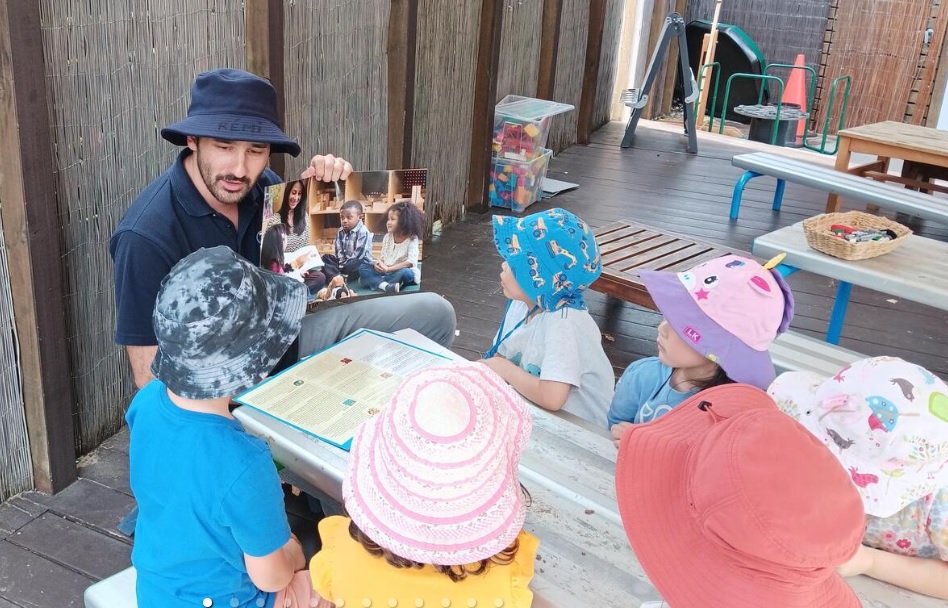
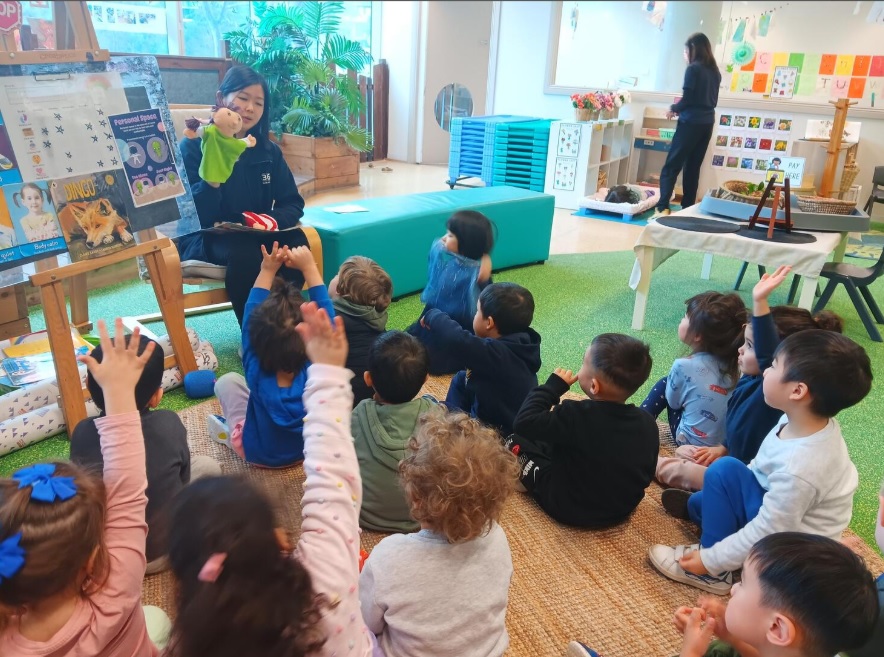
The first five years of development are truly a remarkable time in a human being’s life. In these years, a child’s experiences and relationships help them form millions of brain connections that will create pathways for how they behave throughout their lives. At no other time in a human’s life does the brain form as many connections as it does.
In February 2025, we launched Second Step program (in Frogs, Crocs and Wombats classrooms) that teaches social and emotional skills in the following four areas:
- Skills for Learning: Children gain skills to help them be better learners, including how to focus their attention, listen carefully, and ask for help.
- Empathy: Children learn to identify and understand their own and others’ feelings. Children also learn how to show care for others.
- Emotion Management: Children learn how to calm down when they have strong feelings, such as worry or anger.
- Friendship Skills and Problem Solving: Children learn how to make and keep friends and to solve problems with others in a positive way.
Your child will be learning a lot this year and he or she will need your help! Throughout the year, your child will be bringing home Home Links that go with each of the Second Step Weekly Themes. Home Links are simple, fun activities for you and your child to do together. They are a great way for you to understand what your child is learning and for your child to show you what he or she knows.
Make sure to join www.secondstep.org with the activation key SSPE-FAMI-LY68 to get information about what your child is learning in the Second Step early learning program. If you have any questions about the Second Step program, please Rémi for more information. Thank you for supporting your child in learning the skills that will help get him or her thrive in school and life.
If you would like to see a glimpse of Second Step, click here.
Lunar New Year Celebrations in the Nursery Rooms!
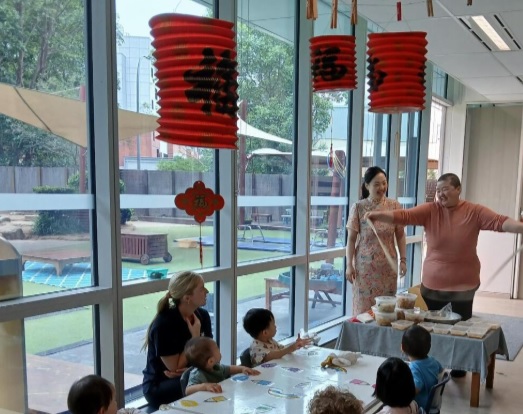
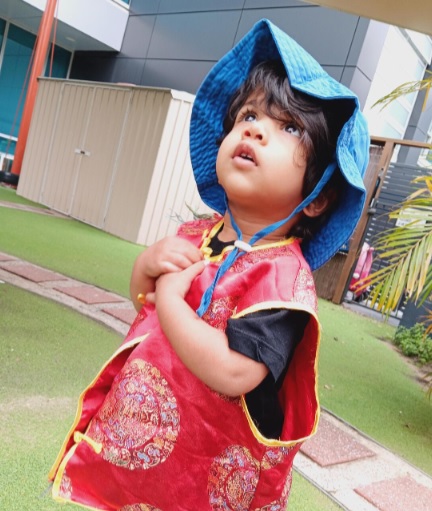
We had an amazing time celebrating Lunar New Year in our nursery rooms! A special highlight was the handmade noodle demonstration one of our Joey’s families gave, who own ‘My Aunt’s Handmade Noodles’ in Eastwood and Burwood. Our Joeys and Geckos experienced the traditional way of rolling noodles by hand and had the opportunity to taste the delicious noodles. The Joeys children also engaged in lantern painting, which they displayed in their room. Every year, families who celebrate hang up red lanterns to bring good luck, health, and happiness for the year ahead.
Our Geckos enjoyed learning some of their favourite nursey rhymes in Mandarin (old MacDonald & twinkle twinkle little star), posted in red envelopes and adding to the festive spirit participated in cultural dress-up. Our Turtles created a Chinese zodiac calendar and discovered they were born in the year of either the Tiger or Rabbit. They also made moon cake playdough and watched a short 1-minute video of the famous lion dance.
It was a wonderful celebration filled with joy, learning, and cultural appreciation!
